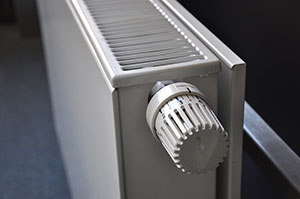It’s that time of year again. The months are getting considerably colder as we plough through autumn and winter is just around the corner. Candles and warm lighting are no longer fooling us into believing it’s warmer than it is, meaning that more and more of us are reaching towards the thermostat to indulge in a bath of warm air. However, we ought to be careful how soon and how often we’re reaching for our heating systems. Indeed, professionals advise the general public to be restrictive with their heating to prevent inflicting health related issues on themselves and costly energy bills. The team at Heat Different (expert engineers qualified to install and maintain renewable heating systems) have provided some easy and effective tips to save you money and avoid unwanted health conditions.
Only turn on when necessary
Drastically moving from cold to hot environments takes its toll on the human body. Specifically, this transition increases blood pressure and impacts the blood flow to the heart. Disrupting the circulation of blood in your body, this process can lead to several serious medical conditions. If you hold off for as long as possible before turning on your domestic heating, not only will you run  less risk of increasing any heart problems, but you could also save yourself £48* every month.
less risk of increasing any heart problems, but you could also save yourself £48* every month.
Turn off when heated
Once the house is heated to a comfortable temperature, experts advise turning the heating off and shutting all windows and doors to keep the generated heat in the household. Prolonging the amount of time that your heating is on will result in you spending unnecessary money and creates a drying atmosphere. A dry atmosphere can spark a variety of health hazards, including asthma, bronchitis, nosebleeds and general body dehydration.
Alternatives to warm up
When rushing in from the cold weather over winter, it’s incredibly easy to turn the heating on and stand by the radiators to warm up your hands and feet. Health experts recommend finding other alternatives to warm up when venturing in from the cold outdoors. Indeed, direct exposure of high temperatures to your hands and feet can cause your blood vessels to experience temporary spasms, blocking the blood flow to these parts of the body. Alternatives to warm up could include making yourself a hot drink that will warm you up inside out, opting for socks, gloves and blankets, or running a bath at a temperature your body can handle.
Temperature of 15-17C
The suggested temperature for your household to remain comfortable and slightly humid is 15-17C. Use your thermostat to track the temperature increase in your home. Once you’ve reached somewhere between the recommended temperatures, turn your heating off. As well as saving money, keeping your household between the highlighted degrees centigrade will help battle weight gain. A cold environment activates your ‘brown fat’ which helps to burn off calories. For this reason, by heating up the environment you’re in, you’ll disable this natural bodily function.
At Heat Different, we’re passionate about installing renewable heating systems and tackling fossil fuels one property at a time. However, even we agree that using these tips to reduce the amount of energy used, whether it’s fossil fuels or sustainable, is advice worth taking on board. Adhere to these and you could find be yourself saving a small fortune while protecting your health.
*Based on the average monthly cost for gas in a three or four-bedroom house in the UK.



Add new comment